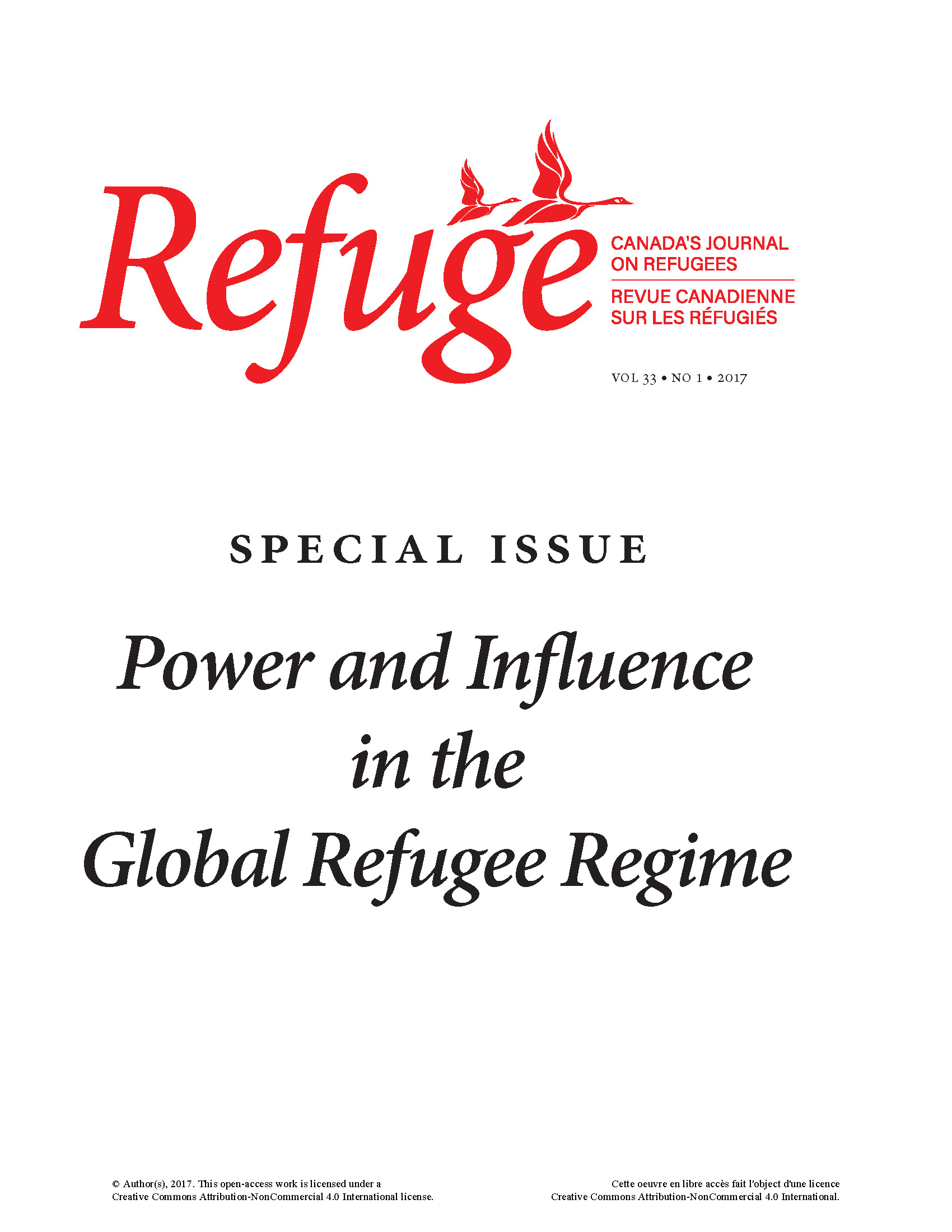Australia as a Powerbroker on Refugee Protection in Southeast Asia: The Relationship with Indonesia
DOI:
https://doi.org/10.25071/1920-7336.40446Keywords:
Australia, Southeast Asia, Indonesia, Bali Process, Regional Cooperative Arrangement, cooperative hegemony, securitization, power relationships, bilateral agreementsAbstract
Using the example of Australian-Indonesian cooperation on deterrence of asylum seekers in transit through Indonesia to Australia, this article challenges the view that Australia is a regional hegemon. It does this through two main methods. First, it engages in a close analysis of the shifting relationship between the two countries on refugee and asylum-seeker issues through different periods since 2001 to 2016. This demonstrates that the relationship is in fact more nuanced than previously suggested by other scholars. Second, it refers to Thomas Pedersen’s political concept of “cooperative hegemony,” which focuses upon “ideationalinstitutional realism” as a lens through which to view regional co-operation. It analyzes the institutional nature of the Australian–Indonesian cooperation relationship in the Southeast Asian context, to demonstrate that Australia has not established itself as a model of “cooperative hegemony.”
Metrics
Downloads
Published
How to Cite
Issue
Section
License
Copyright (c) 2017 Susan Kneebone

This work is licensed under a Creative Commons Attribution-NonCommercial 4.0 International License.
Refuge authors retain the copyright over their work, and license it to the general public under the Creative Commons Attribution-Non Commercial License International (CC BY-NC 4.0). This license allows for non-commercial use, reproduction and adaption of the material in any medium or format, with proper attribution. For general information on Creative Commons licences, visit the Creative Commons site. For the CC BY-NC 4.0 license, review the human readable summary.







